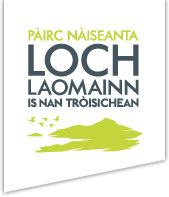
National Park joins Alliance to Save Scotland’s Rainforests
The Atlantic Woodland Alliance, a partnership by Scotland’s leading nature conservation organisations, launched yesterday (Monday 20th May) in a bid to save Scotland’s dwindling rainforests.
Along with Loch Lomond & The Trossachs National Park Authority, the Alliance is made up of Butterfly Conservation Scotland, the Community Woodlands Association, Forestry and Land Scotland, Future Woodlands Scotland, John Muir Trust, The National Trust for Scotland, Plantlife Scotland, The Royal Botanic Garden Edinburgh, RSPB Scotland, Scottish Forestry, Scottish Land and Estates, Scottish Natural Heritage, The Scottish Wildlife Trust, Trees for Life and the Woodland Trust Scotland.
Members of the Atlantic Woodland Alliance gathered at the Royal Botanic Garden Edinburgh for the launch of a State of Scotland’s Rainforest report outlining the current condition of these rare woodlands.
The new report reveals that there is as little as 30,325 hectares of rainforest left in Scotland. The remnant oak, birch, ash, native pine and hazel woodlands are small, fragmented and isolated from each other. They are over mature and often show little or no regeneration. They are in danger of being lost forever. The partners will now work to implement a strategy to save and expand them.
Simon Jones, Director of Conservation and Visitor Operations at Loch Lomond & The Trossachs National Park Authority said: “The native woodland in the National Park includes some of Scotland’s rare temperate rainforests which are one of our most precious natural resources and of global importance.
“By better managing and expanding our native woodlands, we not only increase the diversity of wildlife they support, but also help build resilience to the impacts of a warming climate – a vital legacy for future generations.”
Find more information on the Atlantic Woodland Alliance.

